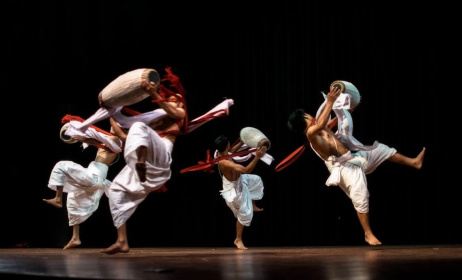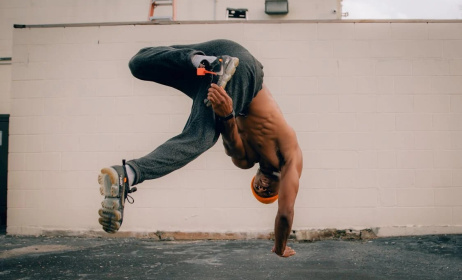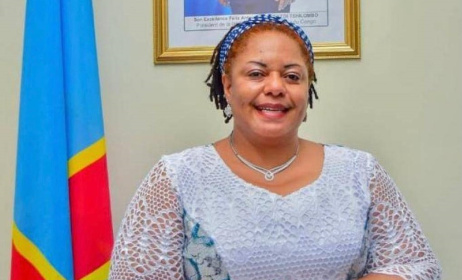Congolese rumba enters UNESCO intangible heritage list
UNESCO this week announced that it had inscribed Congolese rumba on its intangible heritage list.
 The late Congolese rumba musician Papa Wemba.
The late Congolese rumba musician Papa Wemba.
The news was confirmed on Tuesday by the Democratic Republic of Congo (DRC)’s communications minister and government spokesman, Patrick Muyaya. The development follows a joint application, which constitutes the origins of modern rumba music, by the DRC and Congo-Brazzaville in March 2020, and arrives five years after Cuban rumba was accorded the same honour.
Muyaya called for the milestone to be celebrated on “both banks of the Congo River”, referring to Congo-Kinshasa and Congo-Brazzaville.
In August, the DRC’s minister of culture Catherine Kathungu Furaha launched a campaign in the media to rally support for the inclusion of the genre on the UNESCO heritage list.
“Rumba is a vector of influence for our country, we have to make it our own,” she said. “It is impressive to see how this rumba has crossed history and the centuries. It is the history of slavery with this music leaving for America, for Cuba, and returning in the 1930s,” UNESCO director-general Audrey Azoulay said. “This music became a vector of resistance. It accompanied African independence. This music is very present in both Congo, on the African continent and throughout the world. Rumba even inspires other music today,”
Rumba “is considered an essential and representative part of the identity of the Congolese people and their populations in the diaspora,” UNESCO said. “It also allows the transmission of social and cultural values of the region, but also the promotion of social, intergenerational and united cohesion.”
The inclusion of Congolese rumba represents a new frontier for the sound, which has transcended centuries and borders. “Rumba is a passion shared by all Congolese,” National Institute of the Arts director and chairman of the joint commission Professor André Yoka said. “It is a unifying element of social cohesion, but also of the past and the present.”
Cultural professionals including Zaïko Langa Langa group leader Jossart Nyoka Longo called for more government investment in the countries’ cultural sector. “Rumba was already well known, now it must find its place on the international scene,” Longo said.
Also known as Rumba Lingala, Congolese rumba’s origins can be traced to the Congo basin during the 1940s. It is primarily driven by the theme of love, and made its way across the rest of Africa throughout the 1960s and 1970s. DRC performer Koffi Olomide and the late Congolese rumba star Papa Wemba are considered some of the genre’s most important contributors.





























Commentaires
s'identifier or register to post comments